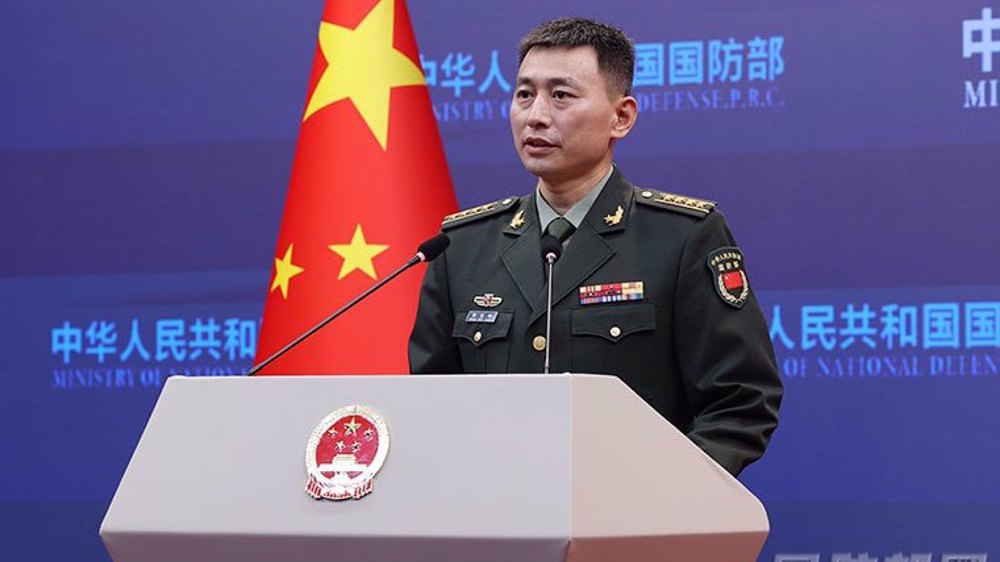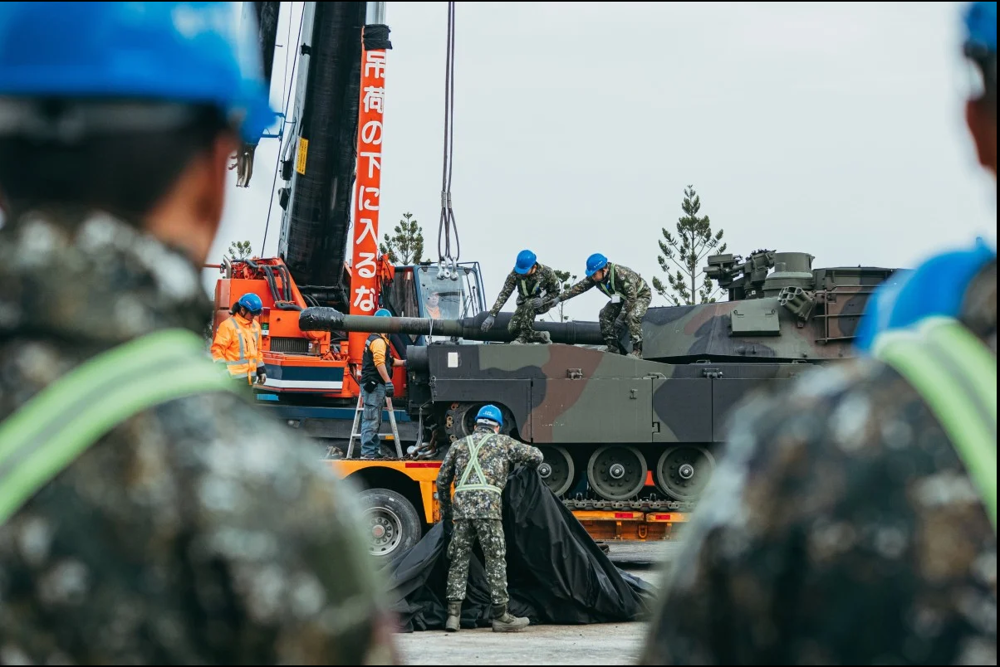Outraged China urges US to revoke arms sales to Taiwan
An outraged China has urged the US to revoke immediately its "wrong decision" to sell $1.42 billion worth of arms to Taiwan which Beijing considers a renegade province.
Chinese Foreign Ministry spokesman Lu Kang said Friday Beijing has lodged a formal protest with Washington and urged the US government to "uphold its solemn commitment to the One-China principle."
China's embassy in the United States said the sale was a "wrong move" that would hurt relations between the two countries because it would send a very wrong message to "Taiwan independence" forces.
"The Chinese government and Chinese people have every right to be outraged," the embassy said in a statement.
The United States is the sole arms supplier to Taiwan which China regards a rebel province and has never renounced the use of force to bring it back under its control.
Lu called Taiwan an indispensable part of China's territory, saying "we firmly oppose this arms sale to Taiwan."
China’s ambassador to Washington, Cui Tiankai, said the arms sales would betray Chinese President Xi Jinping’s trust in US President Donald Trump, built when the latter invited Xi and his wife to the US in April.

During their meeting at Trump’s private residence in Florida, the US president promised President Xi to make efforts to build “a very, very great relationship” between the two countries.
“Arms sales to Taiwan will certainly undermine the mutual confidence between the two sides and runs counter to the spirit of the Mar-a-Lago summit,” Ambassador Cui told reporters in Washington DC, referring to the meeting at Trump’s private estate.
US State Department spokesperson Heather Nauert said on Thursday that the planned US weapons sales to Taiwan were valued at “about $1.42 billion.”
The arms deal includes advanced missiles and torpedoes, in addition to technical support for an early warning radar system.
The US & ‘One China’
Beijing considers self-ruled Taiwan part of its territory, and expects other countries to adhere to the policy of “One China,” which recognizes Chinese sovereignty over Taiwan.
The US, long practicing that policy, briefly upset Chinese rulers when Trump took a congratulatory telephone call from Taiwan’s leader later last year, breaking with diplomatic protocol. Although he later backed his decision to take the call, and further questioned the “One China” policy, Trump ultimately acknowledged Chinese sovereignty over Taiwan, and seemed to have regained Beijing’s confidence with reassurances that Washington would be committed to the policy. And later came the private meeting at Mar-a-Lago.
The US has had military ties with Taiwan even before President Trump took office and despite the recognition since 1979 of Chinese sovereignty over the self-ruled island.
The latest announcement of the weapons sales to Taiwan came on the same day as the US Treasury Department announced a decision to slap a series of economic sanctions on Chinese companies for allegedly giving financial support to North Korea for its weapons programs.

South Korean President Moon Jae-in is in Washington to discuss North Korea and trade.
Pyongyang is under international pressure to abandon its nuclear and missile programs. North Korea says it needs them to defend itself against America’s decades-long policies of aggression and expansionism in the region.
China is North Korea’s main ally. South Korea is the North’s chief regional adversary, and thousands of US forces are stationed in South Korea.
VIDEO | Carol Singers for Palestine on London’s Parliament Square
American warplane downed after Yemeni attacks 'baffled' US air defense: Ansarullah
VIDEO | Yemenis praise the military for its successful operations against Israel
VIDEO | Israel continues to bomb Gaza homes
VIDEO | An insider's view of the country: Meybod City in Yazd
‘All wars have rules. All of those rules have been broken’ by Israel
VIDEO | Report flags India’s violation of rights of Rohingya detainees
Turkey's foreign minister meets Syria's de facto leader in Damascus










 This makes it easy to access the Press TV website
This makes it easy to access the Press TV website